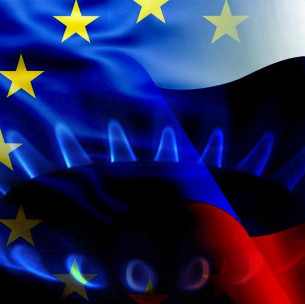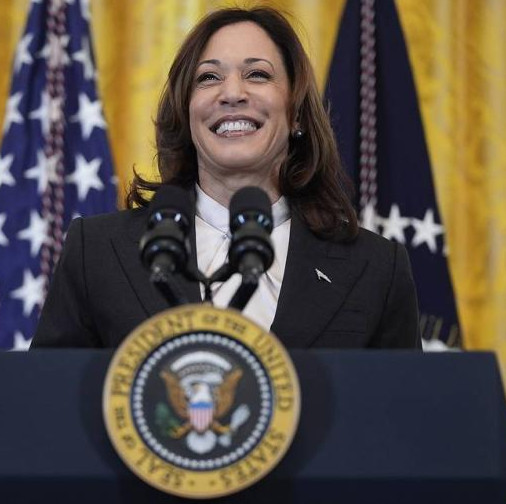
Fears of major war grow as Israel braces for a retaliatory strike from Iran; Bangladesh’s long-serving prime minister steps down amid mass protests; and Ukraine comes into conflict with West African nations. These stories topped Tuesday’s newspaper headlines across Russia.
Izvestia: Fears of major war grow as Israel braces for retaliatory strike from Iran
Israel is prepared for any scenario amid discussions of Iran’s potential retaliatory strike following the killing of Hamas political bureau chief Ismail Haniyeh in Tehran, Dmitry Gendelman, an advisor to the Israeli prime minister, told Izvestia. Meanwhile, the US expects Iran to attack the Jewish state soon. Washington has already sent aircraft and navy ships to the region, Izvestia notes.
Experts acknowledge the possibility that Iran will carry out an attack but remain skeptical that Israel will launch a pre-emptive strike. "It’s hard to deny the possibility of an attack. It won’t necessarily happen today; it may take place tomorrow, or in a week, because Iran needs time to prepare for any major attack. The likelihood of Israel carrying out a preventive strike on Iran is low because neither of the countries wants to expand the conflict and turn their ‘duel’ into a large-scale war," Vladimir Sazhin, senior researcher at the Russian Academy of Sciences’ Institute of Oriental Studies, pointed out.
"I think things will continue with the two parties going ‘blow for blow,’ and perhaps, Israel will conduct a proxy strike using its agents in Iran, who are active there on a large scale. Haniyeh’s killing is further proof of that," Sazhin noted.
However, some experts point to the high risk of a major conflict. "Tensions will reach a high point, so the risk of a major war does exist. What is currently happening makes it clear that the Israeli authorities are interested in extending the conflict in order to resolve both their domestic issues and the issue of Iran and its proxies. Israel sees Iran as a threat to its existence, and vice versa. Israel is raising the stakes, and Iran has to do the same," Murad Sadygzade, president of the Center for Middle East Research, emphasized.
The expert also left the door open for an Israeli ground operation in southern Lebanon.
Vedomosti: Bangladesh’s long-serving PM steps down amid mass protests
Bangladeshi Prime Minister Sheikh Hasina, who has been in power since 2009, resigned on August 5 amid mass protests and left the country, Vedomosti writes.
At least 300 people have been killed in this summer’s protests in Bangladesh, sparked by the reinstatement of quota-based systems for government job recruitment. Protesters are concerned about job prospects as nearly 32 mln out of the country’s 170 mln citizens don’t have a source of income or any vocational education.
Sheikh Hasina’s resignation, which was announced by the military as it sought to take control of the situation, stemmed from her inability to keep the country together amid the unrest, said Maria Savishcheva from the Center for the Indian Ocean Region Studies at the Russian Academy of Sciences’ Institute of World Economy and International Relations. Now, the opposition center-right Bangladesh Nationalist Party (BNP) has a chance to come to power but it’s unclear if it will succeed in securing voter support, the expert noted. Besides, even though the military is playing a stabilizing role in the crisis, its loyalty to any one faction can not be guaranteed, Savishcheva added.
There are internal rather than external reasons behind the Bangladeshi prime minister’s resignation, Andrey Kortunov, research director at the Russian International Affairs Council, pointed out. The future trajectory of Bangladesh depends on who comes to power.
Meanwhile, Vladimir Sotnikov, leading researcher at the Institute Institute of China and Modern Asia, believes that the situation in Bangladesh depends on the military as the army may well declare a state of emergency, claiming to be the only security guarantor, the expert said. As for the nuclear power plant that is being built in Bangladesh in coordination with Russia, the military may postpone its construction. "However, [Russian State Atomic Energy Corporation] Rosatom’s agreement with the Bangladeshi authorities is unlikely to be canceled as such contracts usually contain a force-majeure provision and after all, Dhaka has already made advance payments in the project, which is providing jobs to the country’s citizens," Sotnikov stressed.
Vedomosti: Ukraine ruffles feathers in West Africa
Colonel Abdoulaye Maiga, spokesman for Mali’s transitional government, has announced that his country is severing relations with Ukraine after Kiev claimed it was supporting Tuareg rebels. In late July, the rebels attacked a convoy of the Malian armed forces and their allies from the Wagner private military group, causing significant losses, Vedomosti notes.
The diplomatic scandal was triggered by a statement from the Ukrainian Defense Ministry’s Main Intelligence Directorate (GUR) Spokesman Andrey Yusov, who said that Ukraine had provided assistance to the Tuaregs in the attack. Maiga said that his government was shocked by this revelation; he also slammed Kiev’s actions as "a violation of Mali’s sovereignty."
Mali’s authorities also took note of a remark that Yury Pivovarov, Ukrainian ambassador to Senegal, Guinea, Guinea-Bissau, the Ivory Coast and Liberia, made on Facebook (prohibited in Russia due to its ownership by Meta, which is designated as extremist), praising what the Tuareg rebels were doing in Mali. The post was later deleted.
Mali’s neighboring countries also chimed in on the situation. Senegal’s Foreign Ministry reminded Pivovarov of the obligations of discretion, restraint and non-interference. Burkina Faso’s authorities, in turn, urged the envoy to get a grip on himself.
The diplomatic spat coincided with the start of Ukrainian Foreign Minister Dmitry Kuleba’s African tour. He is visiting Malawi, Zambia and Mauritius on August 4-8, seeking to ensure the participation of African nations "in global efforts to restore a just peace for Ukraine and the world."
The conflicting goals of Ukraine's information campaign on the continent are quite clear, Grigory Lukyanov, researcher with the Russian Academy of Sciences’ Institute of Oriental Studies, noted. On the one hand, the Kiev authorities are conducting a dogged campaign targeted towards their own people and Western allies. "The goal is to strengthen their own image as a global military power capable of waging and winning a hybrid war against Russia, not only on the line of engagement in Europe but also in other parts of the world, portraying itself as a global military tool. Besides, this is how Kiev is trying to depict its conflict with Russia as a global rather than a local one," the expert said.
On the other hand, Kiev is seeking to build relationships with African nations, but Ukraine is going about this the wrong way, lacking a good understanding of the regional situation, Lukyanov added.
Media: Global financial markets brace for crucial week amid recession fears, Japan’s Black Monday aftermath
Japan’s Black Monday did not bleed into the European and US stock markets, where the leading indexes dropped by just 1.4-2%. Still, experts point to the high risk of recession in the US and the weakness of the Chinese economy, which may lead to negative consequences for the entire world. Analysts believe that this week will be crucial for global markets, Kommersant writes.
Solid Broker experts note that there are several reasons behind the recent stock market tumble. In particular, US macroeconomic data, including unemployment numbers, and consumer activity indicate that a recession could be coming. Besides, the current sell-off stems from quite high stock valuations of the technology sector, the weakness of China’s economy and changes in Japan’s monetary policy, Mikhail Smirnov, deputy investment director at General Invest, said.
Meanwhile, a negative trend in oil prices suggests that "the risk of a global economic slowdown significantly outweighs the effect of a potential escalation of the military conflict in the Middle East," Andrey Vanin, head of financial market analysis and premium services at Gazprombank Investments, pointed out.
Given the situation on the stock and commodity markets, it looks like the world economy is on the verge of another global crisis, Natalya Milchakova from Freedom Finance told Izvestia. "However, if major banks and financial institutions in the US and Japan don’t go bankrupt like we saw in Japan in 1997 and in the US in 2008, then a crisis will likely be averted. Quite a sharp decline in key rates in the US and other G7 countries may help," she said.
As for the Russian economy, the fall had little impact because of the country’s relative isolation due to sanctions, Alexander Shneiderman from Alpha Forex explained. Still, that’s not to say that Russia isn’t integrated in the global economy and interwoven with the economies of its new partners.
Izvestia: Russia exports food to over 160 countries despite Western sanctions
Russia currently supplies food to more than 160 countries despite the sanctions war against it. In the ten years of sanctions, the country’s agricultural production rose by 33.2%. Russia is self-sufficient across a great many products, which has made it possible to increase exports 2.6-fold. This is what makes Russia a guarantor of global food security, Agriculture Minister Oksana Lut said, Izvestia writes.
The food embargo was a pivotal moment for the Russian agricultural industry as production significantly rose following sanctions and the wide introduction of advanced technologies enabled Russia to become a global industry leader in many areas, the Agriculture Ministry said.
When introducing sanctions against Russia, the US and other countries did not take into account the world’s demand for food, making Russia’s achievements in the agricultural sector all the more important, Vladimir Kashin, head of the State Duma (lower house of parliament) Agriculture Committee, said, explaining the surge in Russian exports.
In the past ten years, Russia has gone from an importer to one of the world’s key exporters, rising to 17th place in the global list. Today, Russia rivals major agricultural suppliers such as Australia and Argentina, a spokesperson for the Agroexport federal center told the paper. Over the past years, Russia’s agricultural industry has made great strides in production, strengthening national food security and making it possible to expand exports.
According to Anton Trenin, an expert with the corporate rating group at AKRA, grain production is one of the most successful sectors, which meets both domestic needs and high external demand. Last year, grain accounted for 37% of the country’s exports in monetary terms.
TASS is not responsible for the material quoted in these press reviews









